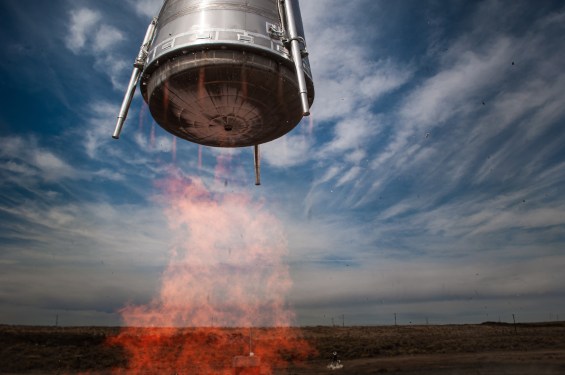Breakthroughs in Reusable Rocket Technology
Stoke Space is making significant strides in the field of reusable rocket technology. The four-year-old startup has recently completed a successful test of its reusable second stage, a critical milestone in the development of its first rocket, christened ‘Nova’. This achievement marks a major breakthrough in the company’s efforts to revolutionize space travel with more efficient and cost-effective rockets.
New Funding to Fuel Nova Development
In a significant boost to its resources, Stoke Space announced that it has closed $100 million in new funding led by Industrious Ventures. This latest round of investment includes participation from prominent investors such as the University of Michigan, Sparta Group, Long Journey, and other notable names. Existing investors like Breakthrough Energy, Y Combinator, Point72 Ventures, NFX, MaC Ventures, Toyota Ventures, and In-Q-Tel also contributed to this funding.
With a total of $175 million raised to date, including a $65 million Series A in December 2021, Stoke Space is well-positioned to accelerate the development of Nova. The company plans to use this new capital to fund critical components of its first rocket, including:
- First-stage engine and structure: Developing the foundational elements of Nova’s propulsion system.
- Orbital version of the second stage: Enhancing the reusable upper stage design for orbital flights.
- Launch infrastructure at Cape Canaveral in Florida: Establishing a robust launch site to support future missions.
Critical ‘Hop’ Test Success
Recently, Stoke Space successfully completed a critical ‘hop’ test of its reusable upper stage. This trial flight demonstrated the novel oxygen-hydrogen rocket engine design, which features thrusters distributed around the circumference of the second stage. While the altitude achieved might seem modest at first glance (around 30 feet), this milestone proved out the architecture of the second stage, marking a significant achievement in the development cycle.
According to Stoke co-founder and CEO Andy Lapsa, finalizing the architecture of the second stage was a crucial step before building out the rest of the vehicle. As he noted in an interview with TechCrunch last month:
"The first step on our journey was figuring out what a fully reusable upper stage and space vehicle looks like."
"We really believe that it’s hard to build the rest of the vehicle until you know an answer."
Lincoln Angel Joins Stoke’s Board
Stoke Space has also announced that Steve Angel, Chairman of multinational chemical company Linde plc, will join its board of directors. With a background as former CEO of Linde and current member of GE’s board, Angel brings significant expertise to the table.
First Orbital Flight Test in 2025
The new funding and technological advancements are expected to aid Stoke Space in achieving its ambitious goal of conducting its first orbital flight test in 2025. As Lapsa emphasized:
"We are pushing really hard to get to orbit by 2025."
"There are some interesting opportunities there to do things even before that."
With this renewed momentum and capital, Stoke Space is poised to take significant strides in the field of reusable rocket technology, making space travel more efficient and accessible.
Related Topics
Author Bio: Aria Alamalhodaei
Aria Alamalhodaei is a seasoned journalist covering the space and defense industries at TechCrunch. With a background in art history from the Courtauld Institute of Art in London, she brings a unique perspective to her reporting.
Contact Aria:
Email: ariadal
Twitter: @Aria Alamalhodaei
Subscribe to TechCrunch for the latest news and insights on space, defense, and more.



